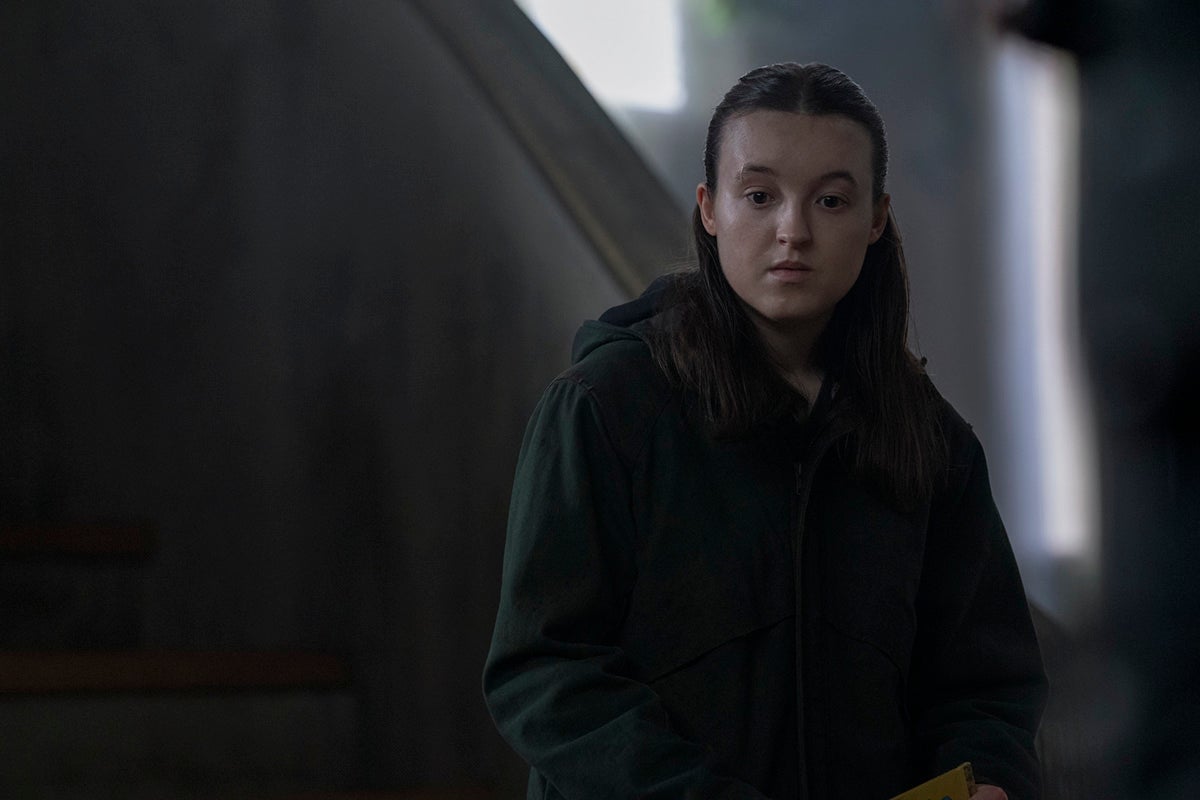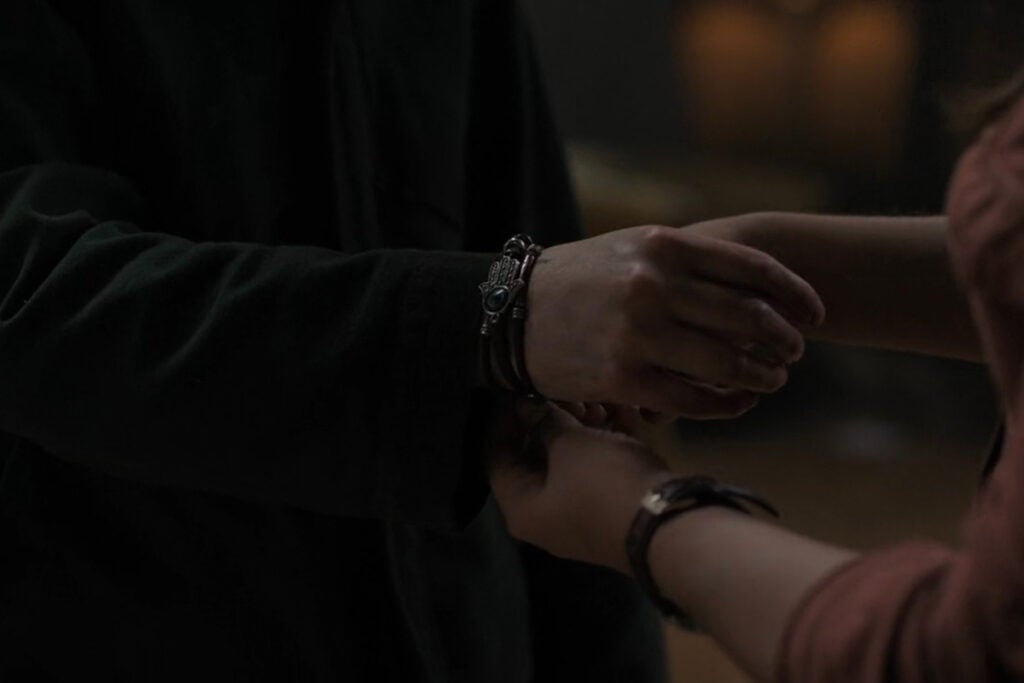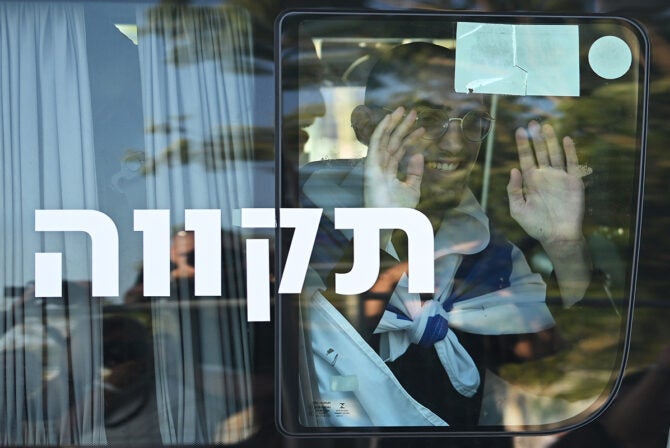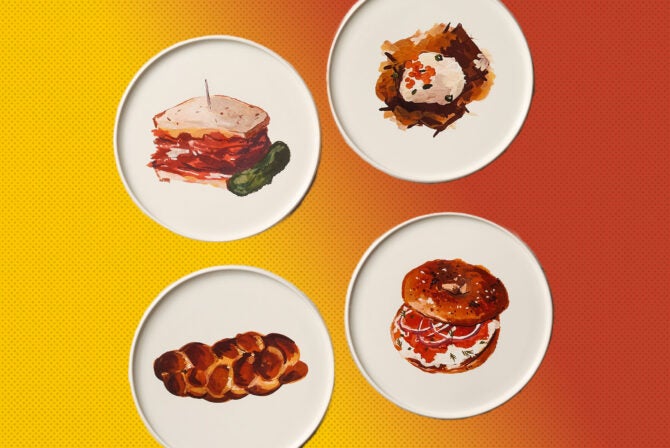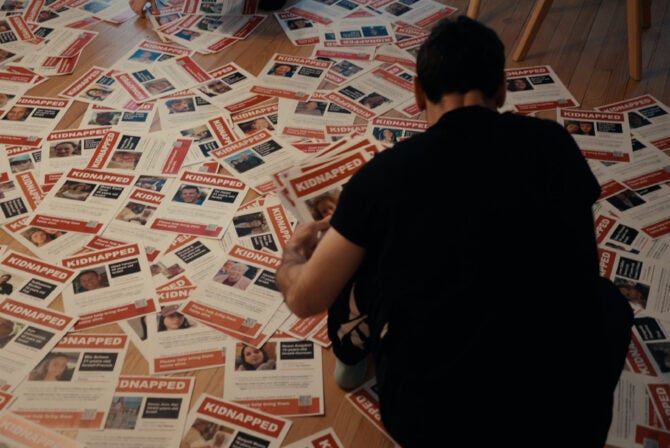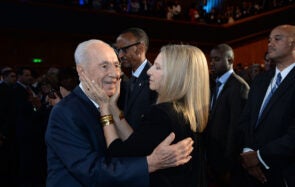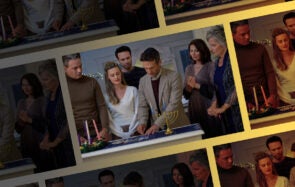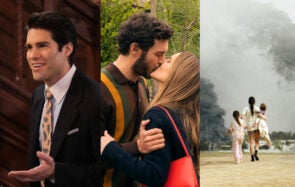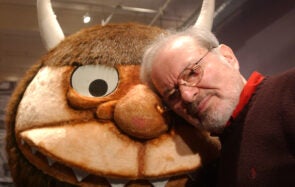The following contains spoilers for season two of “The Last of Us.”
In the haunting finale of the second season of HBO Max’s “The Last of Us,” the show about a post-apocalyptic world overrun by zombies, where humanity is in strife, a longtime Jewish symbol of good luck has a brief but meaningful cameo. It happens when protagonist Ellie (Bella Ramsey), on a journey to avenge the death of her surrogate father, Joel (Pedro Pascal), is given a bracelet by her lover, Dina (Isabella Merced) when the two have to split ways. It’s meant to be for “good luck,” Dina tells Ellie. Ellie scoffs that the two haven’t been so lucky in their journey, but Dina dismisses it with a haughty and determined: “I’m still alive.”
Dina doesn’t tell Ellie exactly why the bracelet is good luck, and Ellie doesn’t further inquire about it, but discerning viewers will recognize the symbol on it as a hamsa, named after the Arabic word for five, the number of fingers on this palm-shaped amulet, a hand with an eye in its center, meant to ward off the Evil Eye (“the idea that a person or supernatural being can bewitch or harm an individual merely by looking at them,” according to MyJewishLearning), which gets mentioned in Jewish scripture. The hamsa itself is not a uniquely Jewish symbol. It’s used by people of all religions with roots across the Middle East and the Levant. Some call it the hand of Fatima (Mohammad’s daughter), some the hand of Miriam (after Moses’ sister). Five is an auspicious number in both Islam (the five pillars of Islam) and Judaism (the five books of the Torah). The symbol’s roots might be in early Pagan traditions that pre-date monotheistic religions, but it has become a popular symbol in both Judaism — Jews are speculated by scholars to be the first to use it as an amulet — and Islam. Many Jews wear hamsa jewelry and put hamsa amulets around their homes.
So Dina wearing a hamsa doesn’t automatically indicate that she is Jewish. However, people familiar with the game the show is based on, co-created by Jewish dad Neil Druckmann, will recognize this particular bracelet as a Jewish artifact, one worn by Dina early in the game and prominently displayed in the scene of Ellie and Dina’s first kiss. In the game, we don’t see Dina hand off the bracelet to Ellie, but we do see it on Ellie’s arm in later scenes, an indication that she did hand over the good luck charm (there are quite a few fan theories about the bracelet). While the show’s Dina has not spoken about her religion or ethnicity, in the game, Dina and Ellie discuss Dina’s Jewish roots in a moving scene in a fictional synagogue in Seattle. Dina immediately recognizes the building as a Jewish house of worship because of the menorahs and the bimah. The place, she tells Ellie, brings back a lot of memories of her, of going to synagogue with the sister with whom she survived the zombie apocalypse.
“You never struck me as much of a believer,” Ellie tells her, bewildered.
“Nah,” Dina replies. “But I like coming from a long line of survivors.” Not just of the apocalypse, she tells Ellie, but of “the Inquisition… and the Holocaust.” When Ellie asks her if she still prays, Dina tells her that she did before they left on the journey and that she prayed at Joel’s grave. “Sometimes I just… say little ones to myself,” she adds. “I think it calms me. Helps puts things into perspective. It’s a way of dealing with grief. A way to show respect.”
In a later scene in the abandoned rabbi’s office, Dina reminisces about dipping apples in honey on Rosh Hashanah. “Jewish holidays are all about food,” she tells Ellie. “And celebrating not getting annihilated by our enemies.”
Ellie later unearths a letter from a rabbi to the army official who helped save her and her congregation. “Seventy years ago, my grandfather fled Germany with his family as World War I began. He escaped thanks to the kindness and bravery of a Polish family,” Rabbi Zivah Saunders writers to Lt. Torres in the game version (the synagogue, the rabbi and the letter do not exist in the show). “And so the wheel turns, and the cycle continues: tonight, my family has packed our belongings, and due to your kindness we will be leaving this city, escorted by your brave men. Thank you for helping me preserve what we could of our shul,” she writes, using the Yiddish word for synagogue (and school).
“It is difficult to leave our home behind, but in the end, it is people — living people — that matter,” the rabbi continues, and leaves the army official with one final thought. “For every turn away from a better world, there is often a stronger correction towards it. Do not lose hope for the future. As the old saying goes, ‘it takes but one candle to dispel the darkness.'”
The entire scene is so beautifully reverent, a little spiritual respite in a game full of violence and heart-beating-out-of-your-chest moments. That letter from the rabbi? It touches at the heart of what the the game is all about. Can one choose to be the that one candle? Is that line about “the stronger correction” true?
For Druckmann, the game’s co-director and writer, the TV show’s co-showrunner with Jewish TV creator Craig Mazin, and the writer of many of the show’s episodes along with Mazin and “The Last of Us: Part II” game co-writer Halley Gross, making Dina Jewish in the game was meaningful, but in no way central to the game.
“I was like, ‘Well, it’s rare to see a Jewish character in a video game, and for her to own that,'” Druckmann, who is Jewish and Israeli, shared in a conference before the game’s release. “I have a little bit of Middle Eastern descent, so why not throw that in there? It doesn’t need to be front and center the whole time, but it’s just one more thing.”
It’s not clear yet whether Mazin and Druckmann are going to incorporate Dina’s Jewish heritage into the TV series, whose third season will likely not air before 2027; her backstory seems to have been slightly changed in the show. Jewish viewers and gamers like me who felt so seen and embraced by that moment in the synagogue in the game — a moment that also spoke to our resilience as a people, to the life affirming beauty of our tradition — would definitely love to see it, but since Dina’s Jewishness isn’t central to the game’s plot, rewriting it would not destroy the heart of the story. I’d argue that the deeper part of the game and TV show have a lot to illuminate about the Jewish American story regardless, since it it all about how one protects one’s “tribe” — one’s people, one’s community — how we choose who we belong with, and the lengths we are willing to go to protect and avenge them.
Whether Dina in the show is revealed to be Jewish or not, it was touching to see that little wink at Jewish identity in the final episode of season two.
